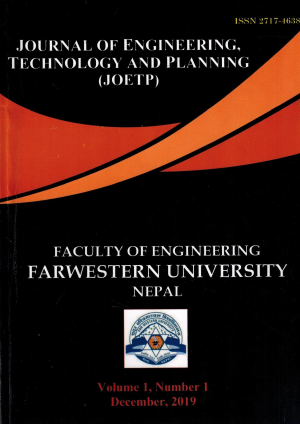Storm water Management in the context of Climate Change and Rapid Urbanization: A case of Tokyo Metropolitan
DOI:
https://doi.org/10.3126/joetp.v1i0.38243Keywords:
Climate Change adaptation, Storm water management, Urban water security, infrastructureAbstract
Groundwater table depletion and increasing flood events can be easily realized in urban areas. It is necessary to improve existing storm water management systems for good quality water environment and reduced hydro-meteorological disasters while preserving our natural/pristine environment in a sustainable manner. This can be achieved through optimal collection, infiltration and storage of storm water. The need of sustainable storm water management is desired and optimal capture measure is explored in this paper. This paper provides a review of storm water management in urbanization and climate change context with a case study of Tokyo Metropolitan, Japan which could be helpful in mitigating the dual problems of groundwater depletion and flood events. This paper presents the overview of storm water run-off management in order to guide future storm water management policies. Also, the effects of different onsite facilities from water harvesting, reuse, ponds and infiltration are explored to establish adaptation strategies that restore water cycle and reduce climate change induced flood and water scarcity.
Downloads
Downloads
Published
How to Cite
Issue
Section
License
Copyright © Faculty of Engineering, Far Western University

